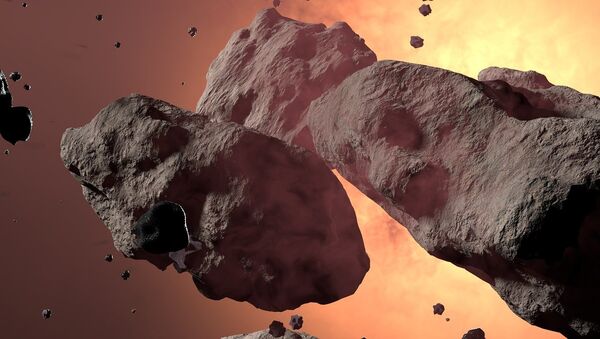A peculiar asteroid designated as 6478 Gault, located within the asteroid belt between the orbits of Mars and Jupiter, and which previously exhibited a behavior usually associated with comets – namely, leaving two trails of dust in its wake – has now apparently yielded yet another surprise for the scientists studying it.
According to a press release issued by MIT on 29 August, the asteroid was caught in the act of changing its color from red to blue, in the near-infrared spectrum, making it the first such phenomenon to be observed in real-time.
Describing this development as a "very big surprise," Michael Marsset of MIT’s Department of Earth, Atmospheric and Planetary Sciences said that the science team believes it has “witnessed the asteroid losing its reddish dust to space, and we are seeing the asteroid’s underlying, fresh blue layers," while his colleague Francesca DeMeo pointed out that it takes only a very thin layer of dust, "as thin as a single layer of grains just microns deep,” to be removed in order to witness "a change in the spectrum."
The researchers believe that both this colour shift and the comet-like activity might be caused by the asteroid "spinning fast enough to whip off layers of dust from its surface, through sheer centrifugal force".
"About 10 percent of asteroids spin very fast, meaning with a two- to three-hour rotation period, and it’s most likely due to the sun spinning them up," Marsset said.
This spinning phenomenon, as the release points out, is known as the Yarkovsky-O’Keefe-Radzievskii-Paddack effect, or YORP effect for short, and has been previously observed on “a handful of asteroids”.
The scientists now intend to further study the asteroid in order to obtain more clues to its activity, the next time it appears on the sky.
"I think [the group’s study] reinforces the fact that the asteroid belt is a really dynamic place," DeMeo remarked. "While the asteroid fields you see in the movies, all crashing into each other, is an exaggeration, there is definitely a lot happening out there every moment."

